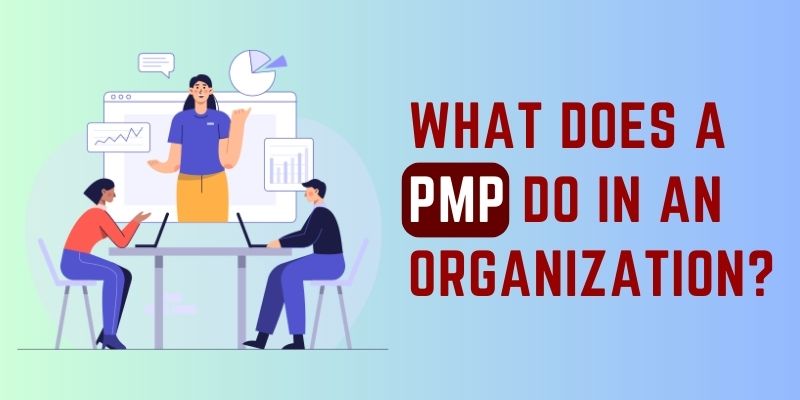
A Project Management Professional (PMP) plays a vital role in an organisation by producing the successful execution of projects, ensuring efficient utilisation of resources, and delivering projects within scope, time, and budget. Their commitments encompass a wide range of tasks that donate to the overall growth and success of the organisation. This blog will explore “What Does PMP Do in an Organization?”. If you want to acquire PMP Certification, join PMP Certification in Jaipur at FITA Academy and learn every aspect of PMP.
Project Initiation
A PMP establishes project goals, identifies stakeholders, and creates a thorough project plan at the beginning of a project. They collaborate with key stakeholders to gather requirements, define the project scope, and determine the preliminary timeframe and budget.
Planning and Scope Definition
A PMP meticulously organises the project’s components. This entails establishing a thorough project management strategy, segmenting the work into feasible duties using a Work Breakdown Structure (WBS), and specifying the project’s parameters. By the project requirements, they also create a project timetable and allocate resources.
Resource Allocation
PMPs evaluate the resources required for each project phase and efficiently distribute them. To do this, roles and duties must be assigned to team members, the necessary skill sets must be present, and any resource limitations or potential conflicts must be managed.
Risk Management
Identifying potential risks and planning ways to mitigate or manage them is crucial to a PMP’s role. They conduct risk assessments, develop risk response strategies, and continuously monitor and update the risk management plan throughout the project’s lifecycle. To learn PMP, join PMP Training in Chennai and enhance your skill set to become an expert in PMP.
Communication and Stakeholder Management
The victory of a project relies on effective communication. PMPs create communication plans to keep stakeholders updated on project status, milestones, and anticipated difficulties. They control stakeholder expectations, settle disputes, and ensure everyone agrees with the project’s objectives.
Project Execution
During project execution, a PMP oversees the implementation of the project plan. They monitor progress, ensure tasks are completed according to schedule, manage changes, and address issues. Regular status updates and performance evaluations keep the project on track.
Cost Management
PMPs are responsible for managing project budgets. They monitor expenses, track costs against the budget, and implement cost-control measures to prevent overruns. This involves using techniques such as Earned Value Management (EVM) to assess project cost performance.
Quality Assurance
A PMP’s primary responsibility is to guarantee the quality of the deliverables. To ensure that project outputs satisfy the established criteria, they develop quality standards, establish quality control procedures, and conduct routine evaluations. Join PMP Training in Bangalore and learn about PMPs’ key responsibilities, skills, and benefits in driving project excellence and organisational growth.
Change Management
Projects often encounter changes in scope, requirements, or other variables. PMPs assess the impact of proposed changes, work with stakeholders to determine the best course of action, and implement changes while minimising disruption to the project’s overall objectives.
Monitoring and Control
PMPs keep track of milestones and KPIs as they proceed through the project about the project plan. They spot deviations from the plan and implement curative measures to keep the project on track with its goals.
Project Closure
Once the project is complete, a PMP ensures a smooth closure. They conduct final reviews, obtain approval from stakeholders, and compile lessons learned. A PMP ensures that all documentation is complete and the project is formally closed.
A Project Management Professional is the driving force behind successful organisational project delivery. They combine their expertise in project management methodologies, leadership skills, and effective communication to coordinate teams, manage resources, mitigate risks, and deliver results that contribute to the organisation’s strategic objectives. You can join PMP Certification to propel your career forward in the dynamic world of project management.
